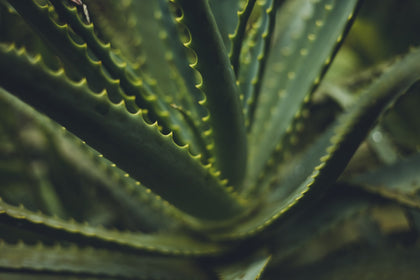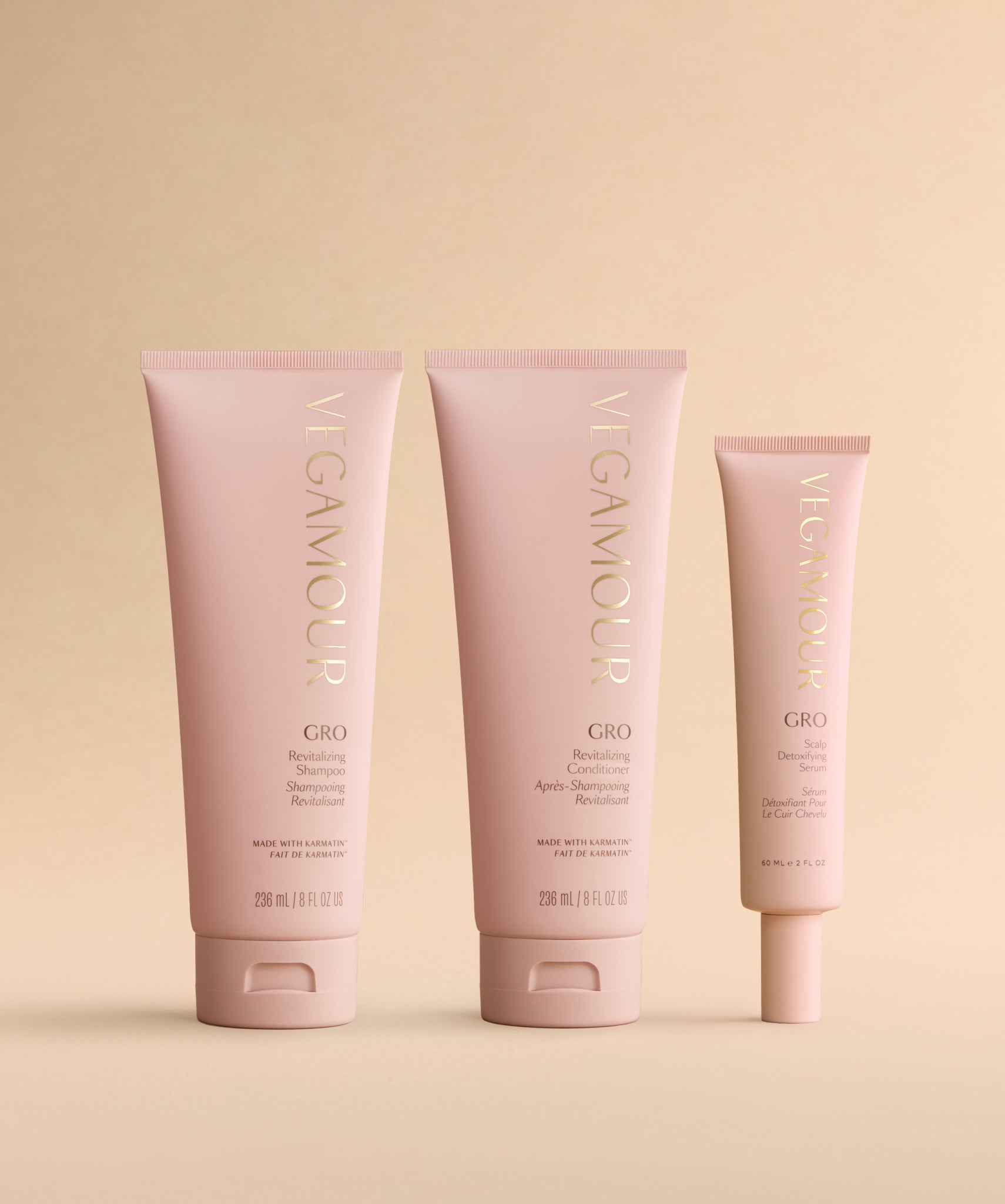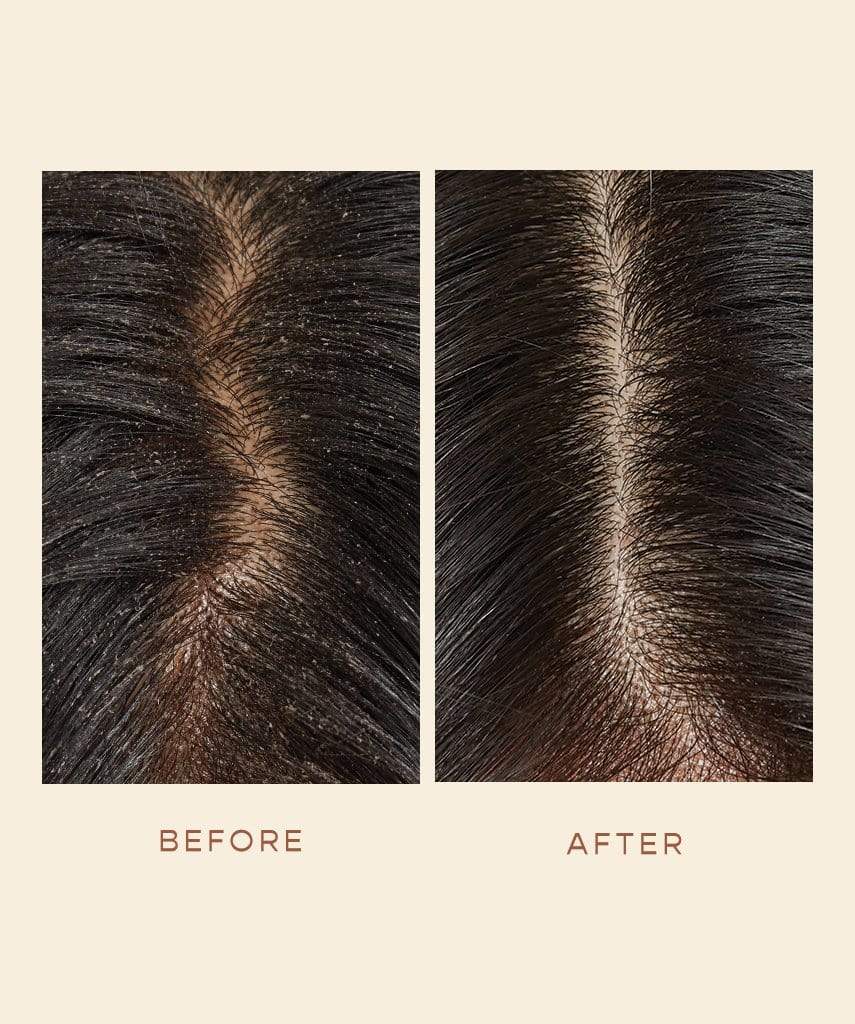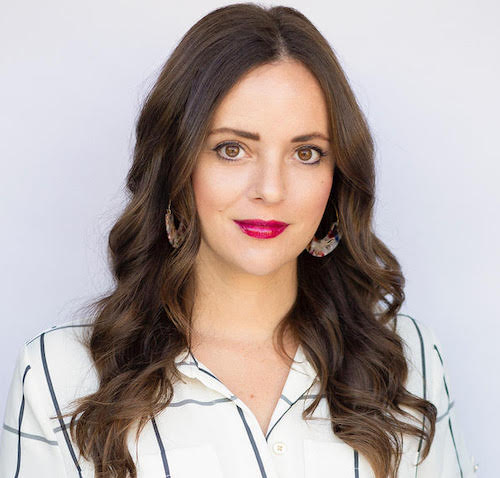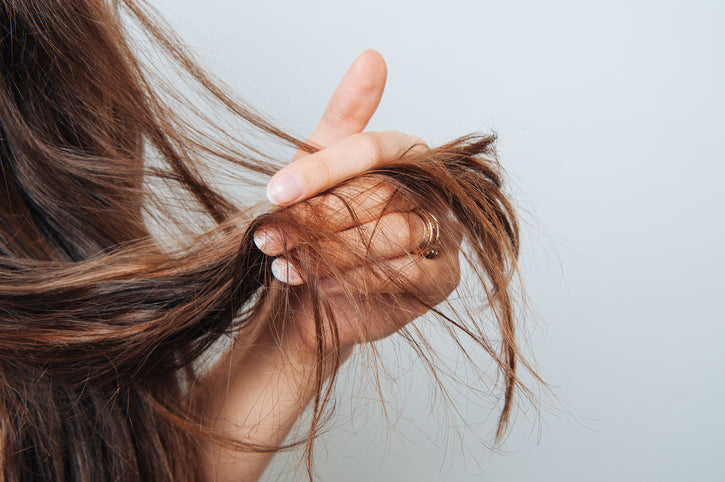Using aloe vera on the body is not a new treatment. Anyone who's ever had a sunburn understands the soothing and calming properties this plant has. Using aloe vera for scalp and hair health is a newer application of this beneficial plant, but this naturally antimicrobial and anti-inflammatory gel-like substance can actually work wonders for your hair.
Read on to find out how to incorporate aloe vera into your beauty regimen as well as the best aloe vera-infused products that nourish and hydrate your hair naturally.
All About Aloe Vera
Aloe vera gel comes from the aloe vera plant and is naturally antimicrobial and anti-inflammatory. Because this natural gel can reduce inflammation, it is commonly used for burns, sunburns, skin irritation or to soothe rashes. Aloe vera naturally soothes irritation and can help hydrate the skin, but it can also work wonders on your scalp.
It's rare to find a natural substance that is both cleansing and moisturizing. Most natural oils that are anti-microbial, like tea tree oil or lavender oil, are generally more drying. Aloe vera, on the other hand, can act as a gentle cleansing agent while at the same time imparting moisture. This one-two punch of benefits is one of the reasons that fresh aloe vera gel is a popular ingredient for hair care products.
Read More: Does Aloe Vera Help With Hair Growth?
#include-related-slider#
Is Aloe Vera Good for Hair?
A healthy scalp leads to healthy hair and an unhealthy scalp can lead to greasy hair or hair that is dry, brittle and damaged. If left untreated, this can lead to sudden hair fall or hair loss. Greasy and frizzy hair often happens when the scalp is producing too much sebum.
Hair expert Alice Rawling explained how you can use a fresh aloe vera hair mask on the scalp. "The raw aloe vera gel is directly applied to the scalp and hair and worked into it," she explained. "Use the hands to rub onto the scalp, in the hair and on the ends. Leave the aloe vera in for about 30 minutes to seal in the moisture before rinsing it out."
"In my practical experience recommending products, I have grown to love aloe vera and recommend it," explained Susan Anderson, founder and CEO of The Worthy Goods. "The greatest thing about aloe vera is that it is a natural moisturizer that can help hydrate and nourish dry or damaged hair. It can also help balance the pH of your scalp, which can prevent dryness and flakiness."
Benefits of Aloe Vera
Because aloe vera has hydrating and cleansing properties, it can be a great additive to shampoo. If your haircare routine usually contains washing techniques like co-washing, then shampooing with aloe vera gel occasionally can help remove any buildup or dead skin cells on the hair and scalp with the help of the naturally occuring proteolytic enzymes in the aloe vera plant.
"Aloe vera makes the scalp and hair healthier with its long-known healing properties to strengthen," said Rawling. "It is also safe and beneficial for all hair types. The raw gel helps in conditioning the hair and repairing damaged and dry hair follicles. It [also] calms an itchy scalp."
If your hair is overly oily and you prefer not to use a clarifying shampoo, you can try massaging a few drops of aloe vera gel on your scalp to cleanse and revitalize the hair strands and scalp. Its antimicrobial properties are excellent for removing excess sebum or residue from other hair products. The effects should be similar to that of an apple cider vinegar rinse.
"Aloe vera also contains enzymes that can stimulate hair growth and improve circulation in the scalp," said Anderson. "It can also strengthen hair roots and reduce breakage, which can help prevent hair loss."
Aloe is also chock full of vitamins A, B12, C and E as well as folic acid which makes it great for strengthening your hair. This beneficial herbal medicine contains a wide variety of amino acids that keep the skin, scalp and hair hydrated and promotes a healthy pH balance.
Related: These 10 Herbs Might Help With Hair Loss
#include-related-slider#
Other Uses for Aloe Vera
Another way to utilize the nourishing and cleansing properties of aloe vera is to use it as a hair mask before washing your hair. In addition to a hair mask, you can also use pure aloe vera as a pre-shampoo cleansing step or as a natural de-tangler.
If you are using aloe vera on your hair and scalp as a mask or as a leave-in treatment to encourage healthy hair growth, it's best to do it just once a week. In rare cases, aloe vera can cause an allergic reaction so it's wise to do a patch test on the inside of your arm before applying the natural ingredient all over your scalp.
"To use aloe vera as a hair mask, rub the gel into the hair and scalp and leave it in to rest for about 30 to 40 minutes before thoroughly rinsing," said Rawling. "It can be mixed with other ingredients such as coconut oil, banana, honey and fenugreek among others depending on the purpose. Once a week is the recommended frequency of using the aloe vera hair mask for best results."
Castor oil and olive oil also work wonders in a hair mask when paired with aloe vera, providing deep nourishment which results in shiny hair.
If you decide to do any of the above techniques, it's best to use pure aloe vera and not aloe that contains lidocaine. You can either purchase pure aloe vera gel or you can make it yourself. You can purchase aloe vera leaves at most grocery and health food stores.
To make your own aloe vera hair mask, cut the leaves in half, scrape out the insides and then strain it through a fine mesh strainer, cheesecloth or a nut milk bag to remove the chunks and access the pure aloe vera gel. It feels like a cool, smooth paste. Add the fresh gel into a spray bottle and mix with the oil of your choice, along with a few drops of your favorite essential oil.
Another way to access the healing properties of aloe vera for hair loss and to promote hair growth is to use natural products that contain aloe vera as one of the main ingredients.
Using Natural Aloe Vera Hair Products
VEGAMOUR's GRO Revitalizing Shampoo and Conditioner harness the nourishing and hydrating properties of aloe vera alongside other plant-based active ingredients and Karmatin™, the first-of-its-kind vegan keratin. This duo utilizes microencapsulated vegan b-SILK™ protein that physically bonds to hair follicles and remains attached to your strands even after rinsing.
This mild shampoo and moisturizing conditioner is clean, color-safe and suitable for all hair types. Wild-harvested marula oil, organic murumuru butter and ximenia oil aid aloe vera in helping to condition, hydrate and fight damaging free radicals without imparting pore-blocking residue on your scalp. This is important because there is a direct correlation between healthy hair and a healthy scalp.
If you are hoping to use aloe vera to cleanse and revitalize your scalp, you can also try VEGAMOUR's GRO Scalp Detoxifying Serum. This serum uses proprietary phyto-actives, vegan proteins and minerals in tandem with a vegan silk protein to gently remove persistent scalp buildup. It also actively helps to soothe an itchy scalp while providing a semi-permeable barrier to retain moisture.
This scalp serum locks in moisture and protects the scalp from harmful environmental pollutants while zinc PCA works to absorb excess oils. This combination reduces scalp irritation while supporting the skin’s natural moisturizing factor. Epilobium angustifolium (willowherb) extract safely reduces the appearance of adherent and non-adherent flakes which leads to a healthy scalp microbiome. Wild-harvested baobab and marula oils provide additional antioxidant support for your scalp and hair follicles in the form of omega 6 and 9 fatty acids, which further moisturize, protect and balance the scalp.
Related: This Is the Best Hair Mask for Thirsty Hair
The Takeaway
Aloe vera is a great natural way to gently cleanse the scalp and hair while also hydrating and imparting natural moisture. It can be used in a hair mask, as a gentle shampoo, a pre-wash treatment or to help naturally detangle messy and knotted hair.
If you've ever had any kind of allergic reaction to aloe, you definitely do not want to slather it on your scalp. Try doing a patch test by putting a small amount on the inside of your arm or wrist, leaving it there for an hour or so to see if any kind of reaction or skin rash develops. If aloe is suitable for your hair and skin, you can either make your own DIY aloe vera hair mask or you can use high-quality products containing all-natural aloe vera that cleanse and nourish your hair and scalp with powerful plant-based active ingredients.
More from VEGAMOUR
- Shop: The Best Aloe Vera Hair Products
- Is Silicone Bad for Hair?
- Here's How to Get Softer Hair
- Does Cold Water Help Hair Grow?
Photo credit: Rafael Rodrigues/Pexels



